Bovine animals, such as dairy cows, produce a great deal of dung and manure that is not hygienic for use in animal facilities. Cow manure, also known as cow dung, is made up mainly of digested grass and, depending on the cattle’s diet, grains, fruits, or vegetables. There are also tracks of hay, straw, bedding, grains, and other organic matter used to feed the animals contained within the droppings. In addition, several agricultural industries collect, store, and use it as fertilizer later on. Let’s check out how to make cow dung manure compost below.
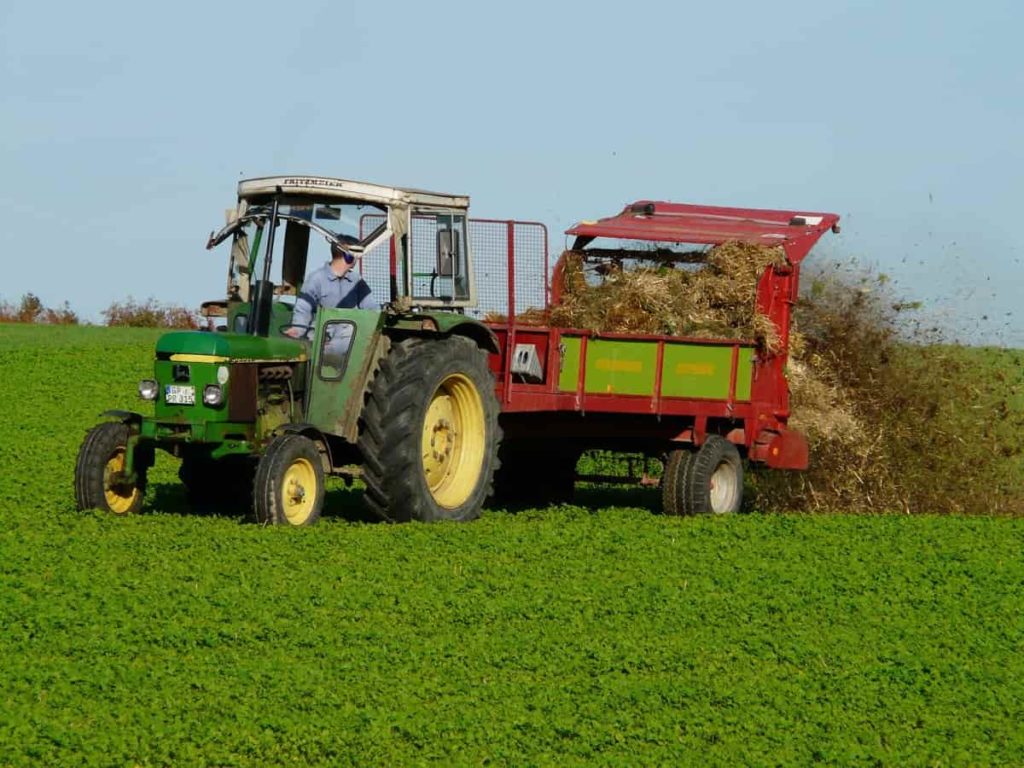
A precise and effective way to reduce soil harm is to use cow manure from livestock or cows. In addition to being rich in nutrients, cow manure is also suitable for plant growth. With 3% nitrogen, 2% phosphorus, and 1% potassium, it is the perfect fertilizer for almost all types of plants and crops. It restores nutrient balance organically to fields. In addition to ammonia, cow manure can sometimes contain dangerous pathogens and bacteria, including E Coli.
As a result, manure must be aged or decomposed before reaching the fields to break down the organic matter and eliminate harmful substances. Using composted cow manure as a fertilizer is highly beneficial. Fresh dung provides high odor levels, salt concentration, and toxic ammonia, whereas compost will create a good fertilizer or top dressing. Compost made from this material should be mixed with high carbon material for rapid aerobic composting and will heat naturally, killing many microbes and weed seeds in the process.
How to make cow dung manure compost
Cow manure ingredients
The mineral elements and nutrient substances in cow dung make it an excellent biomass resource. Additionally, cow dung has a fine texture and water content with slow decomposition and low calorific value, making it a slow-acting fertilizer. Cow dung contains fewer mineral elements and nutrient substances than other livestock manure in terms of nutrient content.
Only crude fiber, crude ash, and nitrogen-free extract content rank higher than fowl manure in terms of organic content. Due to its high yield and sizeable output, its mineral content and nutrient substance content are also relatively higher. Therefore, cow dung can be turned into various value-added products using different processing technologies and crafts, such as compost-making technology and machines (compost turners).
Cow manure composting process
- Locate a place where you can build a 3-4 foot square pile and have enough room to turn it.
- Add shredded paper, brown leaves, straw, spoiled hay, or straw to raw animal manure
- Cover the area with three inches of dry organic material.
- On top of that, spread two inches of manure. Continue layering until the pile reaches 4 feet high. At the same time, building the pile, water it slightly to keep it moist.
- A layer of soil should be applied to the surface.
- The pile should be turned every three days and moist but not soggy.
- When you turn the pile, check the temperature at the center. The temperature should be from 50- 70°C.
- Compost should be used when converted to a dark brown color, crumbly texture, and a strong earthy smell.
In case you missed it: How to Make Sheep Manure Compost: A Step-by-Step Guide to Using in Your Garden
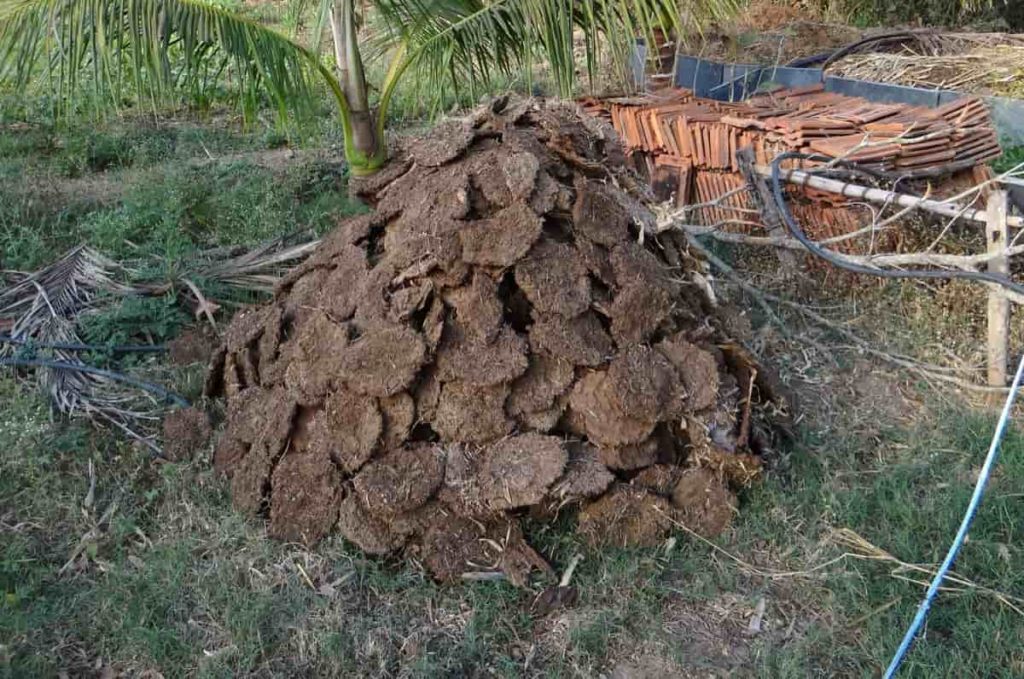
How long does cow manure take to compost?
Factors such as temperature and manure volume affect composting time. For example, high temperatures are required for cow manure composting to improve organic matter decomposition and kill pathogens and grass seeds. You can compost cow manure without equipment in six (6) months if you choose to do so. The composting period can be reduced to 20 days if you use manure composting equipment. It will take 7-10 days for an aerobic fermentation pot to complete the composting process.
Fermentation conditions
Fermentation is the most crucial step during the entire composting process. Composting quality will be affected if fermentation is not complete enough. The compost turner is advanced and professional manufacturing equipment for cow manure to process organic fertilizer. Using this fertilizer can significantly enhance the combination of planting and breeding, ecological cycle, and green development, continuously improving and optimizing the agricultural environment
Moisture control
Manure water content directly impacts composting quality and efficiency. Its primary function is to dissolve organic matter, support microorganism metabolism, and regulate composting temperature. Composting generally proceeds smoothly when the water content is controlled between 50% and 60% at the beginning.
An aerobic composting process becomes anaerobic if less than 40%, preventing microorganisms’ metabolism. At less than 15%, bacteria metabolism would cease universally. In contrast, materials with too much moisture (over 70%) have a low void ratio and lack of air, inhibiting aerobic microorganism growth. Add additives with strong hygroscopicity to cattle manure to reduce its moisture content since cow dung has a water content of 75%-80%.
Temperature control
For fermentation composting to occur, the temperature should be controlled and maintained appropriately. The temperature requirements for different types of microorganisms vary. For example, Mesophilic bacteria thrive at 30-40°C, while thermophilic bacteria thrive at 45-60°C. Maintaining a temperature of 55-65°C for high-temperature compost is recommended. It would reach 75-80 degrees without control during composting, as it is an exothermic process.
Composting product quality would be lowered if it consumed organic matter excessively. Composting temperatures must reach 55°C for at least five days to kill the Coli bacillus and pathogenic bacteria. As part of the production practice, pile-turning and forced ventilation are often used to control the temperature.
In case you missed it: How to Compost Kitchen Waste with Worms: A Guide to Kitchen Vermiculture
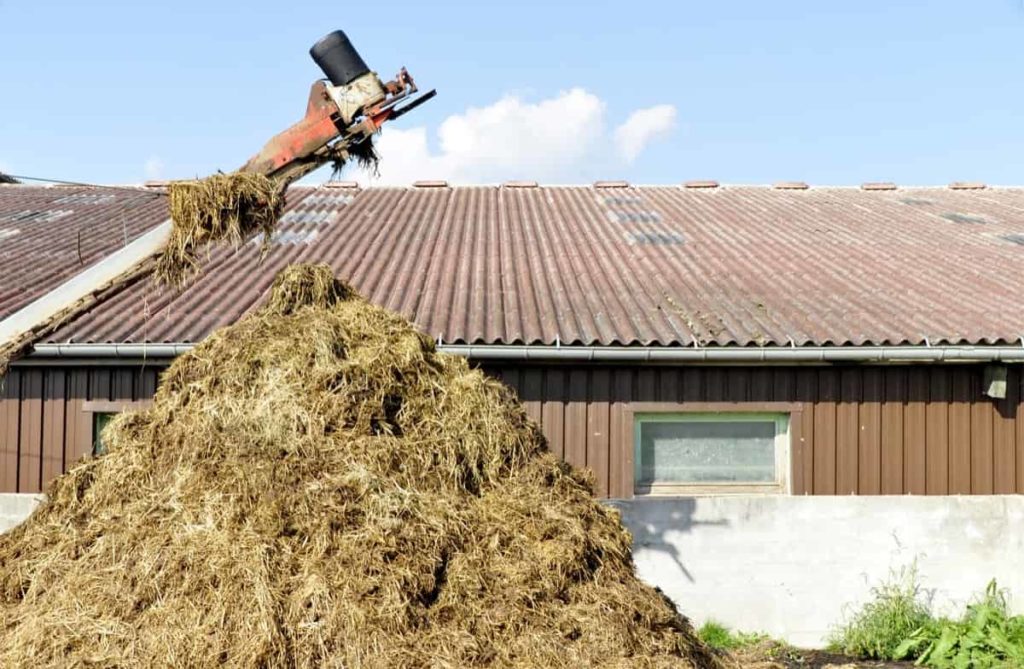
Carbon nitrogen ratio(C/N)
C/N is the carbon to nitrogen ratio in composting raw materials and filler mixtures. The carbon source provides energy for microbial application during composting, and the nitrogen source provides nutrients. After consumption, carbon sources would turn into CO2 and humus, while nitrogen sources would disappear as ammonia gas, turn into nitrate, or be assimilated by the organism.
As such, one of the basic features of composting is the change of carbon and nitrogen. Since microorganisms have a C/N range of 4-30, organic matter should also have a C/N range of 4-30. Aerobic bacteria cannot grow and reproduce at temperatures too high or too low. Therefore, when composting cattle manure, the C/N ratio should be 20-30:1, with 30:1 being ideal.
Ventilation
Microorganisms require oxygen to grow and breed aerobically, so ventilation serves this purpose. Controlling air demand also removes redundant water from the stockpile, adjusts the temperature, and reduces foul odors. However, the metabolism of microorganisms requires just 10% oxygen. Therefore, people should use a compost-turner air breather or pile-turning method for cow dung composting to achieve successful results. As a result, adequate aeration will be achieved, oxygen concentration and heat dissipation will be adjusted, and the gap between aeration materials will be kept specific.
pH value
Composting generally requires a neutral or alkalescent pH value because too high or too low a pH would cause problems. Slaked lime or calcium carbonate can be added in practical production if the pH value is too low. In contrast, if the pH value is too high, fresh green manure or grass can be added to resolve organic acid, bringing the pH back down to a suitable level.
Light
It is always best to place manure piles in full sunlight. They decompose faster as the temperature rises. Putting manure piles out of sight and in a dark corner of the garden may seem like an excellent idea, but this can lead to rotting manure. This rotten manure will have more smells, stagnation, and decomposition problems.
How to apply cow manure compost
The N-P-K value of cow dung manure is high and contains important microorganisms that help improve soil health and plant growth. Compost manure has several benefits for plantations and farming. When cow dung manure is composted, a good amount of organic mass is added to the soil. It is possible to improve soil’s moisture-holding capacity by mixing cow dung manure. Additionally, it improves the aeration of the soil by loosening it.
Many beneficial bacteria in compost manure convert nutrients into an easily absorbed form for root growth. There are very few greenhouse gases produced by cow dung manure, making it an environmentally friendly product. As an organic fertilizer, cow dung manure also promotes the growth of plants. The fertilizer becomes nutrient-rich when fed to plants and vegetables.
Apply composted manure to the garden in small amounts, about one-fourth to one-half inch deep. In poor soils with low organic matter, thicker applications may be justified up to 1 inch deep. Compost should be stored away from water sources and covered with plastic to prevent pollution. Compost should not be applied excessively every year.
New plants
Prepare the soil
The first step in planting and applying manure compost is the soil loosening with the tools thoroughly and making it soft. This preparation of soil results in the transplanted plant that can withstand the transplanting shock.
Add compost manure
Add cow dung manure to the soil, which should be in the ratio of 1:3, i.e., one part cow dung manure and three parts soil. Mix both manure and soil well and keep it ready. Next, position the plant in the ground or soil bed, cover the bed with the soil an,d compost mixture, and tighten the soil a bit.
Water the plant
After planting is completed, add the required amount of water to the plant. This water will lead the plant to absorb the nutrients in the compost along with water.
In case you missed it: How to Prevent Insect Pests in Vermicomposting: Tips, Ideas, and Techniques for Maggots, Fruit Flies
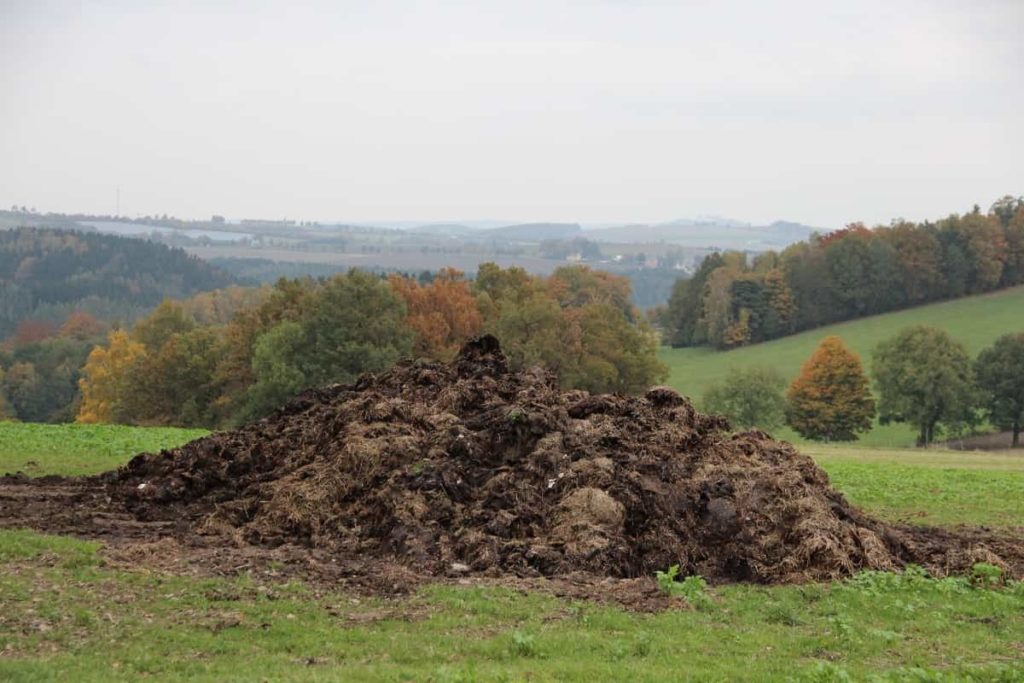
II. Existing plants
Loosen the soil
Plow and loosen the soil with the tools up to 2 to 3 inches or deeper depending on how deep the root is, without damaging the root. Soften the soil. This soil loosening will allow the roots to absorb the compost from the soil very quickly, along with water.
Add compost manure
Apply the manure compost to the soil properly and ensure that it will not sprinkle on the leaves or flowers of the existing plants. Adding cow dung manure compost should be in a 1:3 ratio, i.e., one part cow dung manure and three parts soil. Mix both well and cover the root adequately.
Water the plant
After feeding the plants with compost manure, add the required amount of water to the plants. The soil should be enough moisture but not be soggy. Overwatering will cause root rot diseases.
Benefits of cow manure compost
- Cow manure compost has several benefits that include
- It plays a crucial role in eliminating harmful ammonia gas from manure
- It also eliminates harmful pathogens and weeds.
- It provides a generous amount of organic matter to the soil.
- Adding it to soil improves the moisture content of the soil.
- As the plant can uptake the water and nutrients on its own from the manure, it requires water less frequently and decreases the workload.
- Adding cow manure compost breaks up the compacted soil and improves the aeration of the soil.
- Composted cow manure also contains beneficial bacteria, which convert nutrients into readily accessible forms
- The nutrients can be slowly released without burning tender plant roots.
- Composting cow manure also produces fewer greenhouse gases, making it environmentally friendly.
Drawbacks of using fresh cow manure
If you plan to use locally sourced fresh manure, ensure the cows aren’t treated with antibiotics. Farmers generally use antibiotics to increase the size of cows and speed up their growth. Cows get sick when they are given antibiotics, but some of the antibiotics can also be passed on to their manure.
In addition to killing soil bacteria, these traces can lead to crop antibiotic resistance. It is essential to analyze the implications before gathering cattle poop on your property to fertilize your crops. Here are the disadvantages of using cow manure as compost to help you make an informed decision.
In case you missed it: Vegetable Seed Germination Chart: A Calendar to Time and Soil Temperature
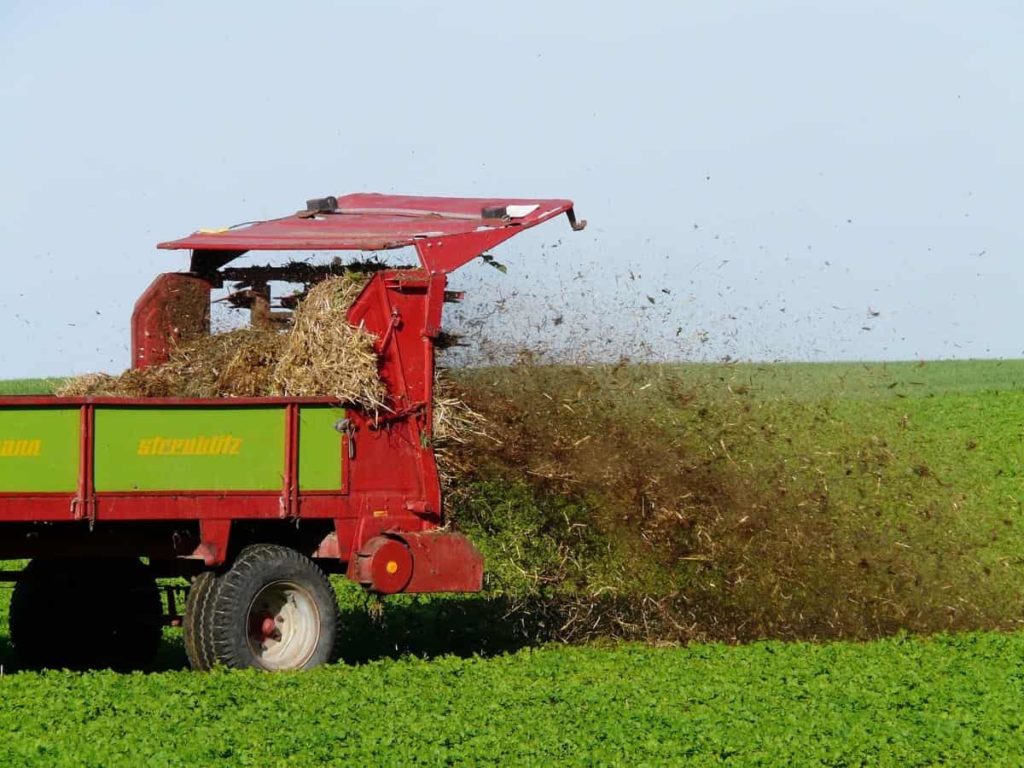
- For high-quality crops, you need relatively large quantities of fertilizer.
- Composting cow dung outside biogas units releases a large amount of methane into the atmosphere.
- Collecting, storing, and managing cow manure is time-consuming and dirty. Additionally, incidents can quickly become public health concerns.
How do I use cow dung in my garden?
When cow manure is turned into compost, it becomes a rich source of nutrients for plants and vegetables. Use it as a top dressing or blend it into the soil. Manure application is based on the nitrogen content and the estimated availability for the first growing season. Because cow manure contains high phosphorus levels, you may add too much phosphorus as you incorporate enough manure to meet the plant’s nitrogen requirements.
As a result, soil testing is essential to determine if too much phosphorus is building up in the soil. In the garden, cow manure can provide nutrients and improve soil structure. However, when too much cow manure is added, nitrate leaching occurs, nutrient runoff, excessive vegetative growth, and salt damage. It is also possible for disease-causing pathogens to be contaminated with fresh manure when it is used for food crops.
Can you put cow manure straight in the garden?
Composted manure fertilizer is an excellent growing medium for garden plants. When cow manure is composted and fed to plants and vegetables, it becomes a nutrient-rich fertilizer. It can be blended into the soil as a soil amendment or top dressing. The compost bin or pile is usually located within easy reach of the garden. Adding cow manure to a garden bed is possible once it has been composted. It improves soil structure despite being low in nutrients.
When should we apply cow dung to the soil?
As fresh manure can transmit human pathogens, such as E.coli, it should never be used on fruits and vegetables. Fresh manure should be made at least four months before harvest if you are growing crops that are in direct contact with the dirt, such as carrots, beets, or potatoes. Fresh manure should be applied for at least three months before other edible crops are harvested. Fresh manure can only be applied in the fall, not in the spring or during the growing season, for areas planted with food crops.
How much time does it take for cow manure to compost?
Composting can take one month to two years, depending on how carefully the pile is managed. When a pile is turned every week or two and carefully managed for all the right conditions, it may compost in one or two months. When a pile is not turned or managed, it will take about half to two years to fully compost. For the manure to become compost, the amount of mixing and turning you do will affect the composting time.
In case you missed it: How to Apply Bone Meal on Plants in Your Garden: What is Bone Meal? and A Guide to Make Bone Meal Fertilizer
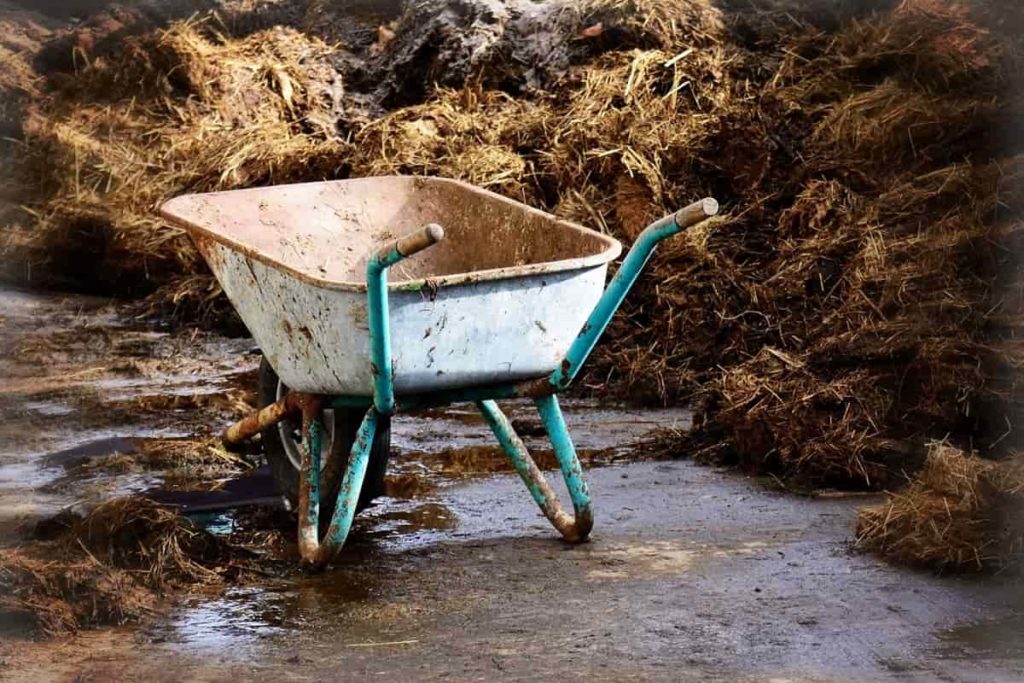
How do I know if manure is composted?
The finished compost looks dark and crumbly, and it smells earthy. Compost pile volume is reduced by about half, and organic items added to the pile are no longer visible. Using the hot composting method, the pile should no longer produce heat.
Conclusion
cow manure can be used for soil fertilization and source of organic matter. It contains organic matter, nitrogen, phosphorous, various microelements, and other nutrients essential for plant growth. Utilizing cow dung manure can ensure your plants’ proper growth by providing them with everything they need. Additionally, it reduces your workload. Therefore there is no reason not to use cow manure on your plants.
- Sheep Farming Business Plan for Beginners
- Aquaponic Farming at Home: A Step-By-Step Guide
- Profitable Village Farming Business Ideas in 2024
- High-Yield Aquaculture: Fast-Growing Fish for Farming
- Effective Fish Pond Construction Techniques for Beginners
- Irrigation and Water Management in Pineapple Farming
- Blossom to Harvest: Mastering Flowering and Pollination in Papaya Farming
- Pig Fattening Essentials: From Selection to Sale for Beginners
- Raising Wagyu Cattle: A Complete Guide for Premium Beef Production
- Soil Types and Their Water Holding Capacity
- Optimizing Irrigation Schedules for Coconut Groves for Enhanced Yield
- Espresso Your Garden: Coffee Grounds for Healthier Acid-Loving Plants
- The Best Soil Mix for Snake Plants: How to Mix Your Own Snake Plant Soil
- Green Thumb Success: Expert Tips for Cultivating Greenhouse Beans All Year Round
- Bloom All Year Round: The Ultimate Guide to Indoor Hyacinth Care
- Eco-Friendly Gardening: How to Make Liquid Fertilizer from Kitchen Waste
- Ultimate Guide to Grow Anise in Pots: Explore Seed Propagation to Harvesting
- Guide to Raising Chester White Pigs: Discover Breed Facts to Growth Management
- Mastering the Elegance: The Ultimate Guide to Weeping Cherry Tree Care, Planting, and Maintenance
- Ultimate Guide to Planting Garlic in Grow Bags: Growing Strategies for Beginners
- How to Fix Spider Plant Leaf-Related Problems: Natural and Organic Remedies
- 10 Reasons Why Your Tulsi Plant is Shedding Leaves: Home Remedies and Solutions
- Optimizing Growth and Yield: The Advantages of Palm Bunch Ash Fertilizer
- Utilizing Neem Oil Extract as a Natural Pesticide for Hydrangea
- From Soil to Harvest: Various Ways in Which Farmers Can Use AI Tools
- Steps to Encourage and Induce Citrus Flowers: A Comprehensive Guide
- How to Fix Snake Plant Leaf-Related Issues: Natural and Organic Remedies
- Transform Your Garden into a Fragrant Oasis with Raat Ki Rani (Night Blooming Jasmine)
- Discover the Ideal Chicken Breeds for Philippine Farms
- How to Create a Poultry Egg Farm Business Plan for Profits
- Grow Lemon Cucumbers Like a Pro: Insider Techniques for Bountiful Yields
- Ultimate Guide to Caring for Your Pink Princess Philodendron: Tips for Thriving Variegation
- Areca Nut Profit Per Acre: Calculating Yield and Cost of Cultivation
- How Kaveri Chicken is Becoming a More Profitable Breed in Indian Backyards
- Transform Your Barn: 9 Steps to Convert a Horse Stall into a Chicken Coop
- Exploring Suffolk Sheep Disadvantages with Limitations and Challenges

good